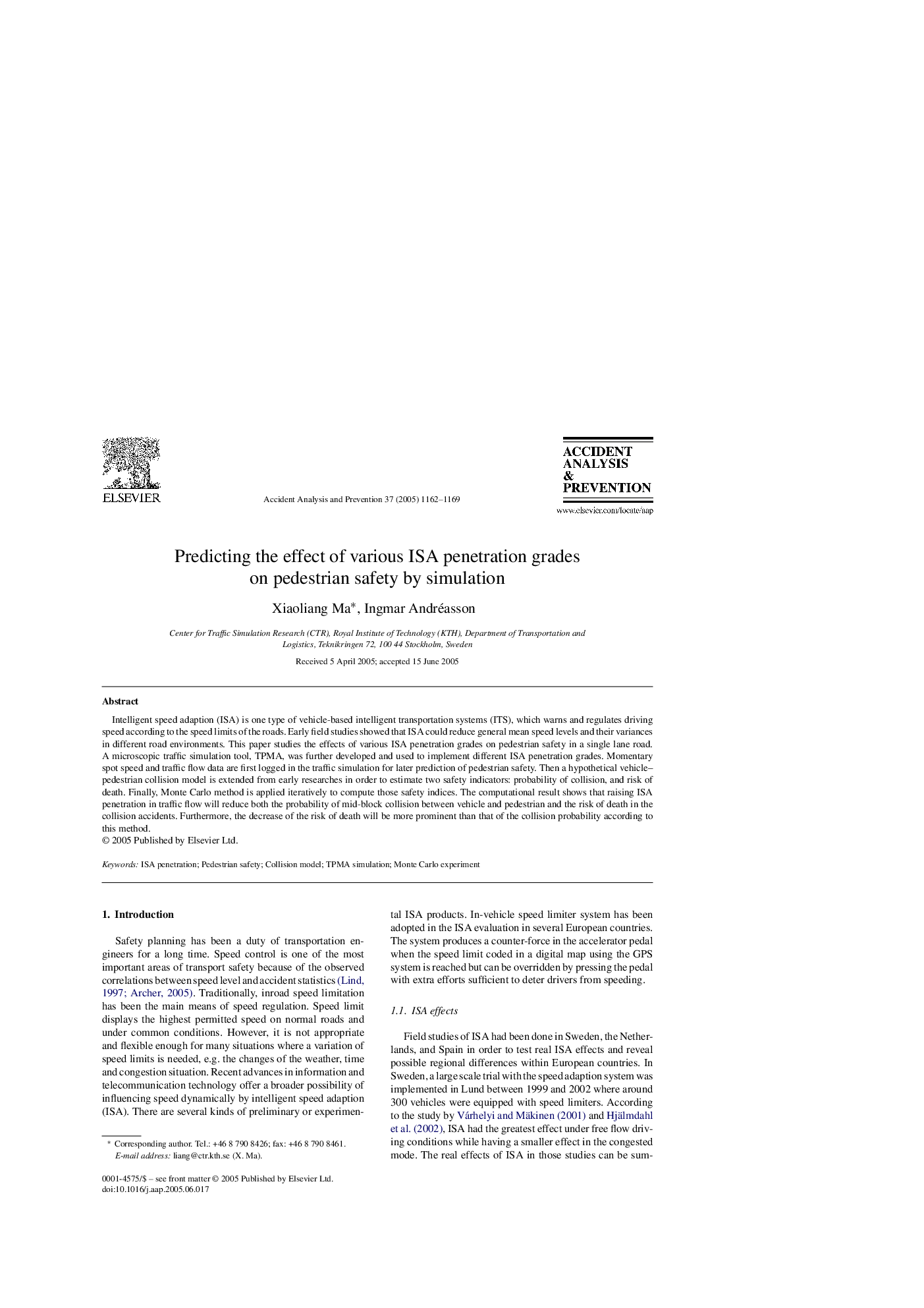| Article ID | Journal | Published Year | Pages | File Type |
|---|---|---|---|---|
| 10371574 | Accident Analysis & Prevention | 2005 | 8 Pages |
Abstract
Intelligent speed adaption (ISA) is one type of vehicle-based intelligent transportation systems (ITS), which warns and regulates driving speed according to the speed limits of the roads. Early field studies showed that ISA could reduce general mean speed levels and their variances in different road environments. This paper studies the effects of various ISA penetration grades on pedestrian safety in a single lane road. A microscopic traffic simulation tool, TPMA, was further developed and used to implement different ISA penetration grades. Momentary spot speed and traffic flow data are first logged in the traffic simulation for later prediction of pedestrian safety. Then a hypothetical vehicle-pedestrian collision model is extended from early researches in order to estimate two safety indicators: probability of collision, and risk of death. Finally, Monte Carlo method is applied iteratively to compute those safety indices. The computational result shows that raising ISA penetration in traffic flow will reduce both the probability of mid-block collision between vehicle and pedestrian and the risk of death in the collision accidents. Furthermore, the decrease of the risk of death will be more prominent than that of the collision probability according to this method.
Related Topics
Physical Sciences and Engineering
Chemical Engineering
Chemical Health and Safety
Authors
Xiaoliang Ma, Ingmar Andréasson,
